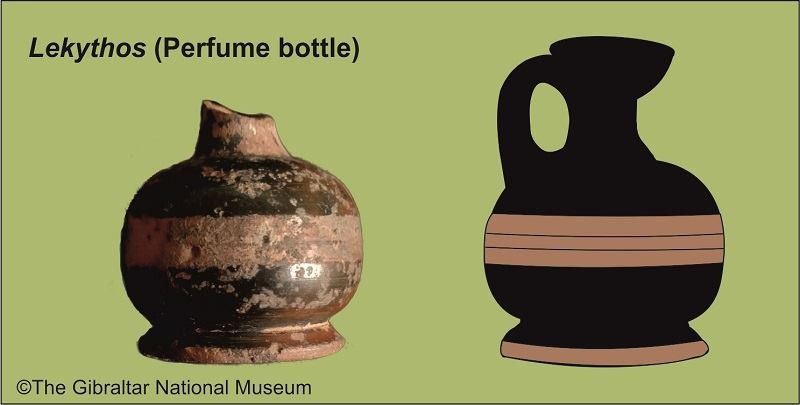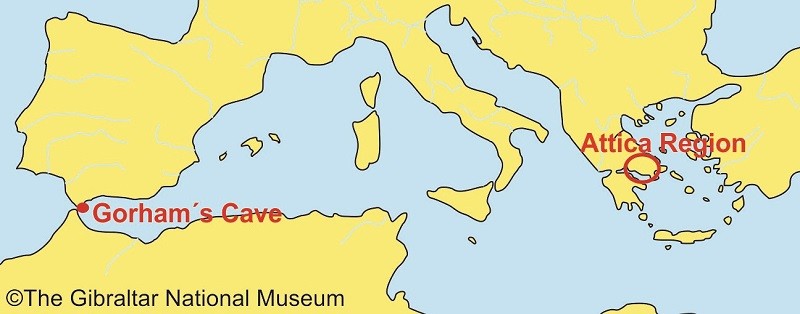Patterned squat Lekythos from Gorham’s Cave


Patterned squat Lekythos from Gorham’s Cave
This ‘lekythos’ was found in the ancient shrine at Gorham’s Cave. It is partially varnished in black, as was usually the case with Ancient Greek ceramics, and is dated to 425-400 BCE, originating in the Attica region of Greece. A lekythos is a vessel used to store perfumes which were very common in rituals related to female deities.
In antiquity, control of the western Mediterranean was a reason for conflict between Mediterranean powers – the Carthaginians, Greeks and finally Romans all battled to for this control. The Greek presence in the Iberian Peninsula was more prominent in the Levante region of Spain (Catalonia and Valencia), being the closest area to where Greek colonies had settled, such as Massalia (Marseilles, France), Roses (Costa Brava, Spain) and Empuries (Ampurias, Spain). The south of the Iberian Peninsula was instead under the commercial and political influence of Carthage.
Despite these established areas of influence, a number of Ancient Greek ceramics from the 5th century BCE have been found along the Mediterranean coast of Andalusia and also in Gibraltar, such as this lekythos. It is now coming to light that the relationship between some Greek poleis (cities) and the area of Gadir and the Strait of Gibraltar was more important than originally believed. A good example is the existence of a building in Corinth (Greece) with unique characteristics, among which the enormous abundance of Punic amphorae stood out. These came from the cities in the region of the Strait of Gibraltar and, within them, had transported the famous salted tuna produced in the area. This building in Corinth has been interpreted as a warehouse or store specialising in this product – a “gourmet” store as early as the 5th century BCE!
Published: May 01, 2020
Other similar VM - Archaeology
18-20 Bomb House Lane
PO Box 939,
Gibraltar
